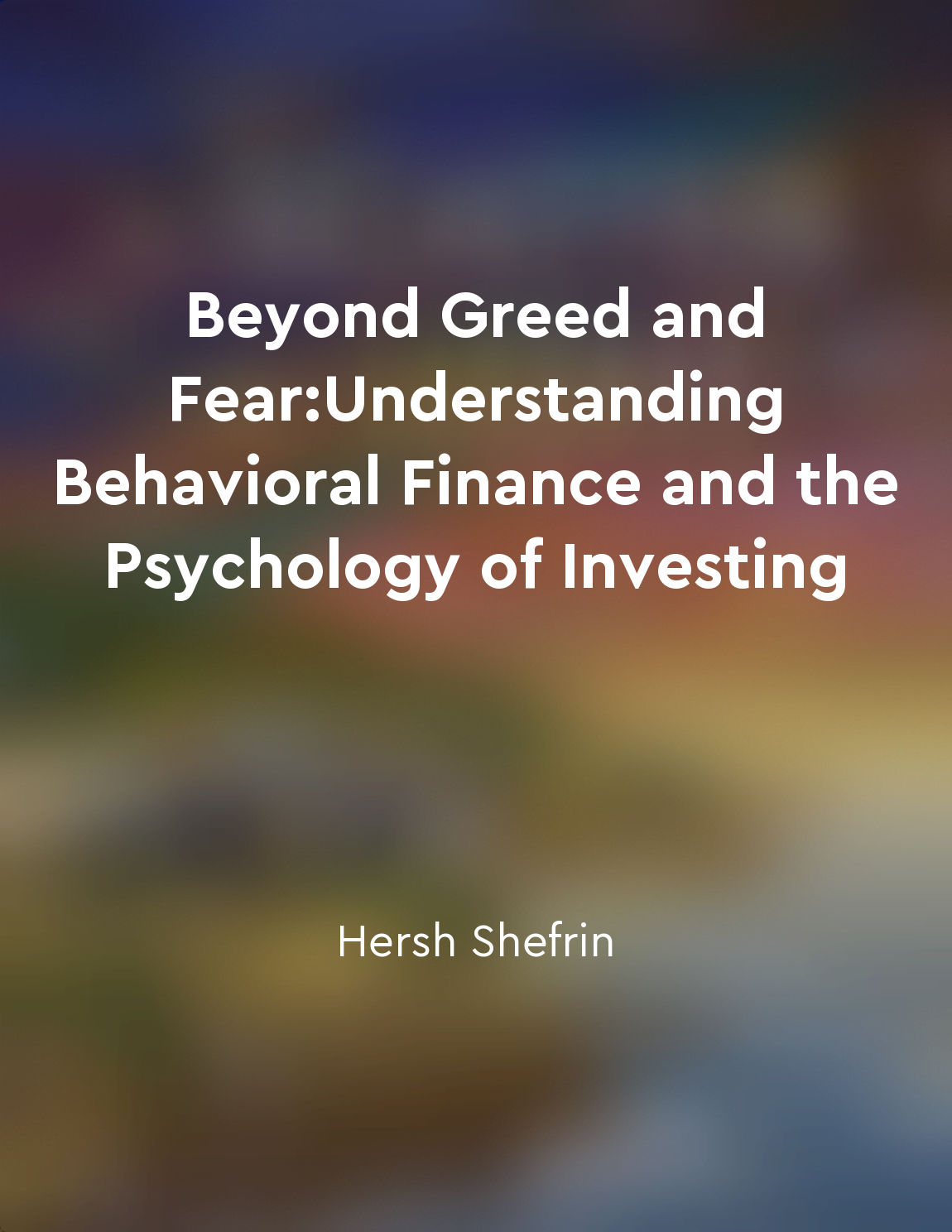Audio available in app
Emotional intelligence is crucial for successful investing from "summary" of Beyond Greed and Fear:Understanding Behavioral Finance and the Psychology of Investing by Hersh Shefrin
Successful investing requires more than just a keen understanding of financial markets; it also demands a high level of emotional intelligence. Investors who can manage their emotions effectively are better equipped to make rational decisions in the face of uncertainty and volatility. Emotional intelligence allows individuals to remain calm and focused during times of market turbulence, preventing them from making impulsive or irrational decisions that can lead to significant losses. One of the key aspects of emotional intelligence is self-awareness, which involves recognizing and understanding one's own emotions. By being aware of their emotional state, investors can prevent their feelings from clouding their judgment and influencing their investment decisions. Self-regulation is another important component of emotional intelligence, as it enables individuals to control their impulses and emotions, allowing them to make logical and rational choices based on facts and analysis. Furthermore, emotional intelligence plays a crucial role in interpersonal relationships, which are essential in the world of investing. Successful investors must be able to communicate effectively with others, such as financial advisors, analysts, and fellow investors. By developing strong relationships built on trust and mutual respect, investors can gain valuable insights and perspectives that can help them make more informed decisions. In addition, empathy is a key aspect of emotional intelligence that can benefit investors. By understanding the emotions and perspectives of others, investors can anticipate market trends and behaviors, giving them a competitive edge in the financial markets. Empathy also allows investors to build strong connections with others, fostering collaboration and cooperation that can lead to better investment outcomes.- Emotional intelligence is a critical skill for successful investing, as it enables individuals to manage their emotions, make rational decisions, build strong relationships, and understand market dynamics. By cultivating emotional intelligence, investors can enhance their ability to navigate the complexities of the financial markets and achieve long-term success.


